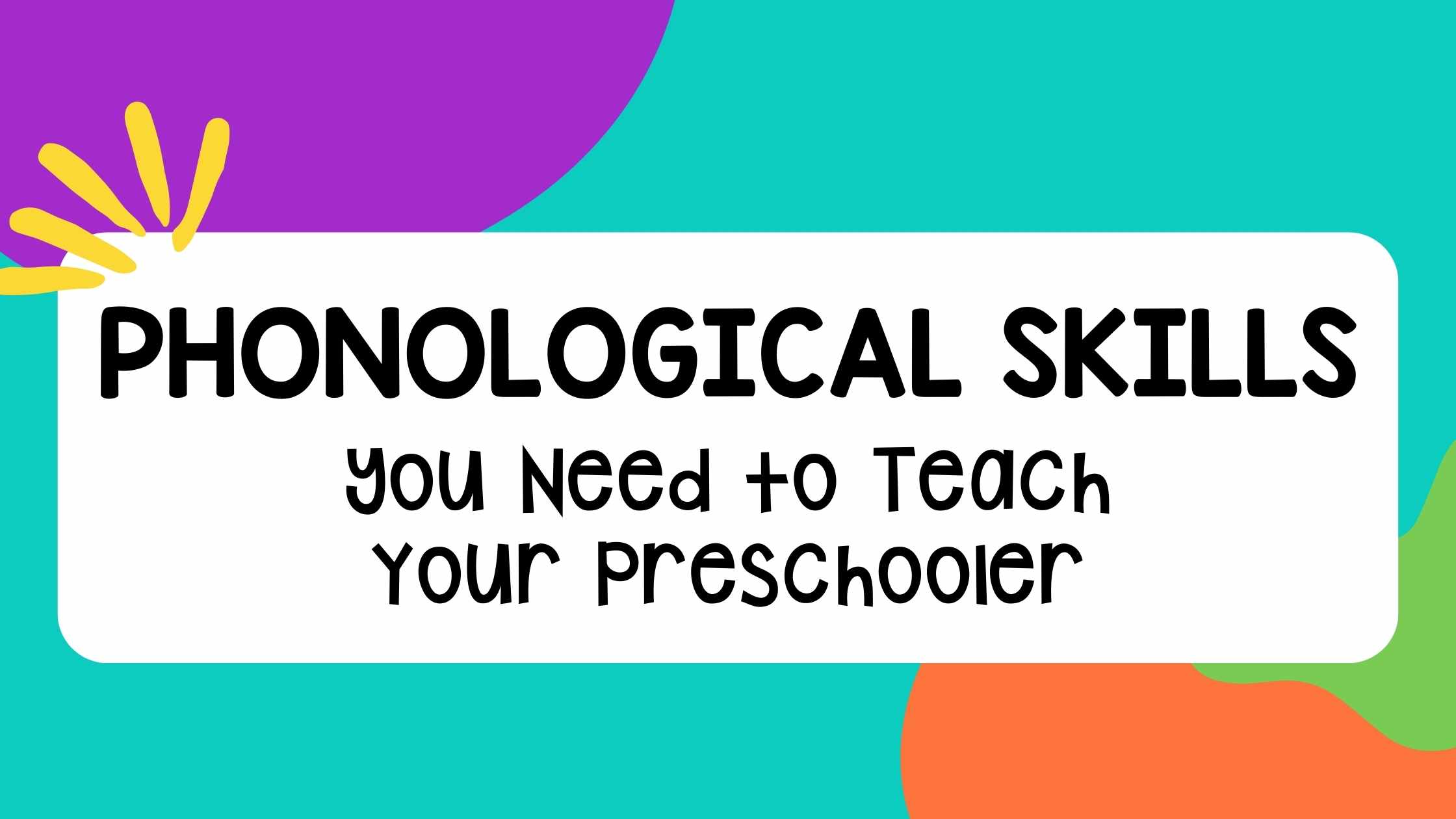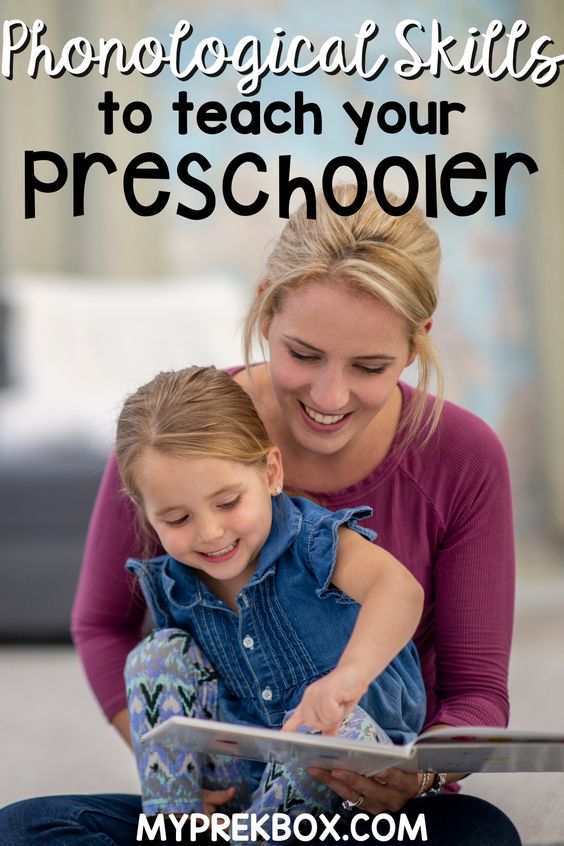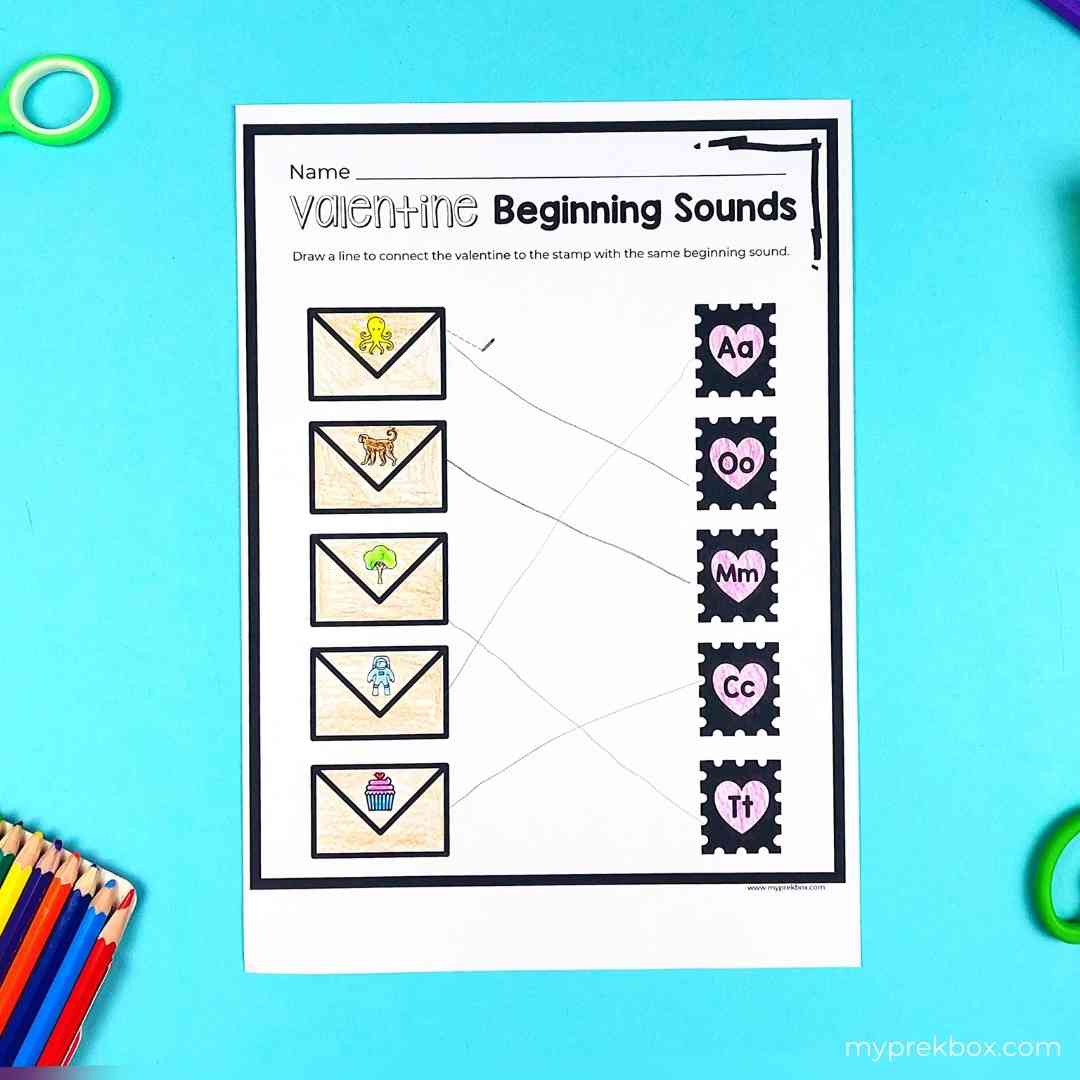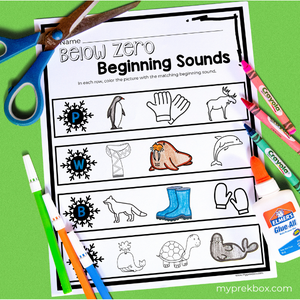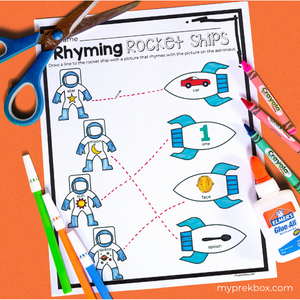As a parent, you may be wondering, "What should I be teaching my preschooler to get them ready for reading in kindergarten?"
At My Pre-K Box, it is our goal to reduce the overwhelm when it comes to teaching your child at home! That's why we use our expert knowledge of early childhood education along with our real-life "mom" experience to plan the best preschool learning activities at home! All fun, play-to-learn activities, with NO PREP.
Today, let's talk about phonological awareness and why we include this skill in My Pre-K Box.
What is phonological awareness?
Phonological awareness is a child's awareness of words, rhyming words, onsets and rimes, syllables, and individual sounds called phonemes. It is an essential skill in understanding the English language. A child learns about sounds, the sounds that letters make, and how they are put together to make words. You can see why phonological awareness is so important for future reading!
Why is it important to teach my preschooler phonological awareness?
Phonological awareness is an important reading and literacy skill to teach your preschooler. To become a reader, it is important to have the ability to hear sounds in words. Hearing individual sounds helps to connect those sounds to letters. Being able to hear phonemes in words is also important in spelling! Parents often tell children who are trying to spell a word, "Sound it out!" Without realizing it, you are suggesting your child to use his/her phonological awareness! To HEAR the SOUND in the word, and use his/her knowledge of letter sounds to apply the matching letter to sound out, and spell, the word correctly. By teaching your preschooler phonological awareness, you are setting the foundation for reading and spelling skills in kindergarten and elementary school!

What are the phonological skills?
Okay--I can see why phonological awareness is important, but what are the phonological skills exactly? Think about how your child responds to the sounds of language. They likely love silly rhyme games. Their favorite stories involve repetition of words and phrases, beautiful rhythm, and rhyming. That's it! Your preschooler's general response to the sound of language is phonological awareness!
As your preschooler matures and becomes more aware or language, he/she will learn more details about those sounds. Your child will develop phonemic awareness (sound awareness) involving recognizing individual sounds in words, and eventually being able to identify, isolate, and manipulate those sounds.
For example: "Say train without the /n/"
What phonological skills should I teach my preschooler?
Remember, the beautiful thing about children is that every child is unique and different. But typically developing children develop phonological skills in a fairly predictable progression.
Before developing phonological awareness, children typically show basic listening skills, a growing word vocabulary, and a basic understanding of language to express needs, comment on experiences, and understand others.
Word awareness. Word awareness typically comes about without direct instruction. Children begin to realize words exist! They may see a parent tracking words with their finger as they read.
Responding to words. Remember when we were talking about children innately loving poems, nursery rhymes, silly songs, finger plays, and books with rhymes? That's what we mean by responding to words! The majority of preschoolers will have to enjoy playing with rhyme (ex: new, two, stew, blue) and alliteration (words with the same beginning sound ex: Peter Parker picked purple plums) by age 4.
Syllable awareness. You can teach your child syllable awareness at home by having him/her count, tap, blend, or segment a word into syllables. Most children develop this skill by age 5. In My Pre-K Box, you will find fun, playful preschool learning games targeting syllable awareness!
Manipulating onset and rime. Onset is the first part of a word. Rime is the last part of a word, containing the vowel.
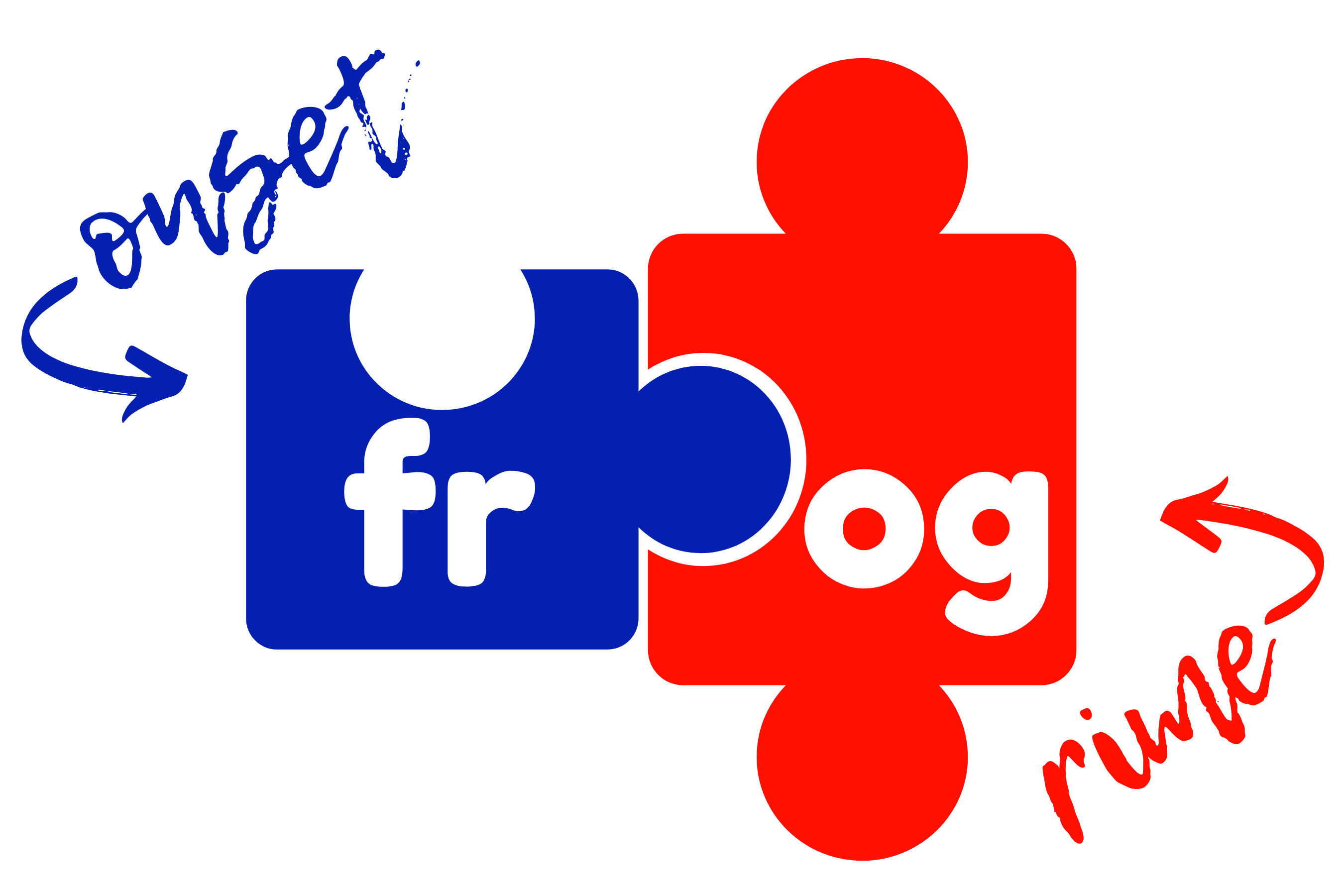
It is easier to identify whether words rhyme or not. (ex: Does bone rhyme with phone? Does bone rhyme with car?) It is more difficult to produce rhyming words (ex: What is a word that rhymes with light?) Most children develop this skill by ages 5-5 1/2. At My Pre-K Box, we mail you fun preschool activities to do at home to help your child learn onset and rime skills!
Phoneme awareness. A phoneme is the smallest unit of sound in our spoken language. Phoneme awareness comes later, typically around age 6, depending on the difficulty of the skill. Expect your child to learn lots of phoneme awareness in kindergarten. Phoneme awareness includes skills like:
- substituting phonemes to build new words (ex: Change the /j/ in jag to /n/)
- sound deletion (ex: Say bear without the /b/)
- phoneme segmentation (ex: Say the word slowly as you tap out the sounds ch-ee-r.)
- blending phonemes (ex: What word am I saying? /h/ /ou/ /s/ house.)
How can My Pre-K Box help your preschooler develop phonological skills?
As this is a very crucial skill for preschoolers, we make sure to include and integrate it into our fun activities!
Preschool Fun Packs
Our Preschool Fun Packs are a collection of themed worksheets that target math and literacy skills - and that includes phonological awareness. Here are some activities from our Preschool Fun Packs that can help kids develop phonological skills - while having fun!
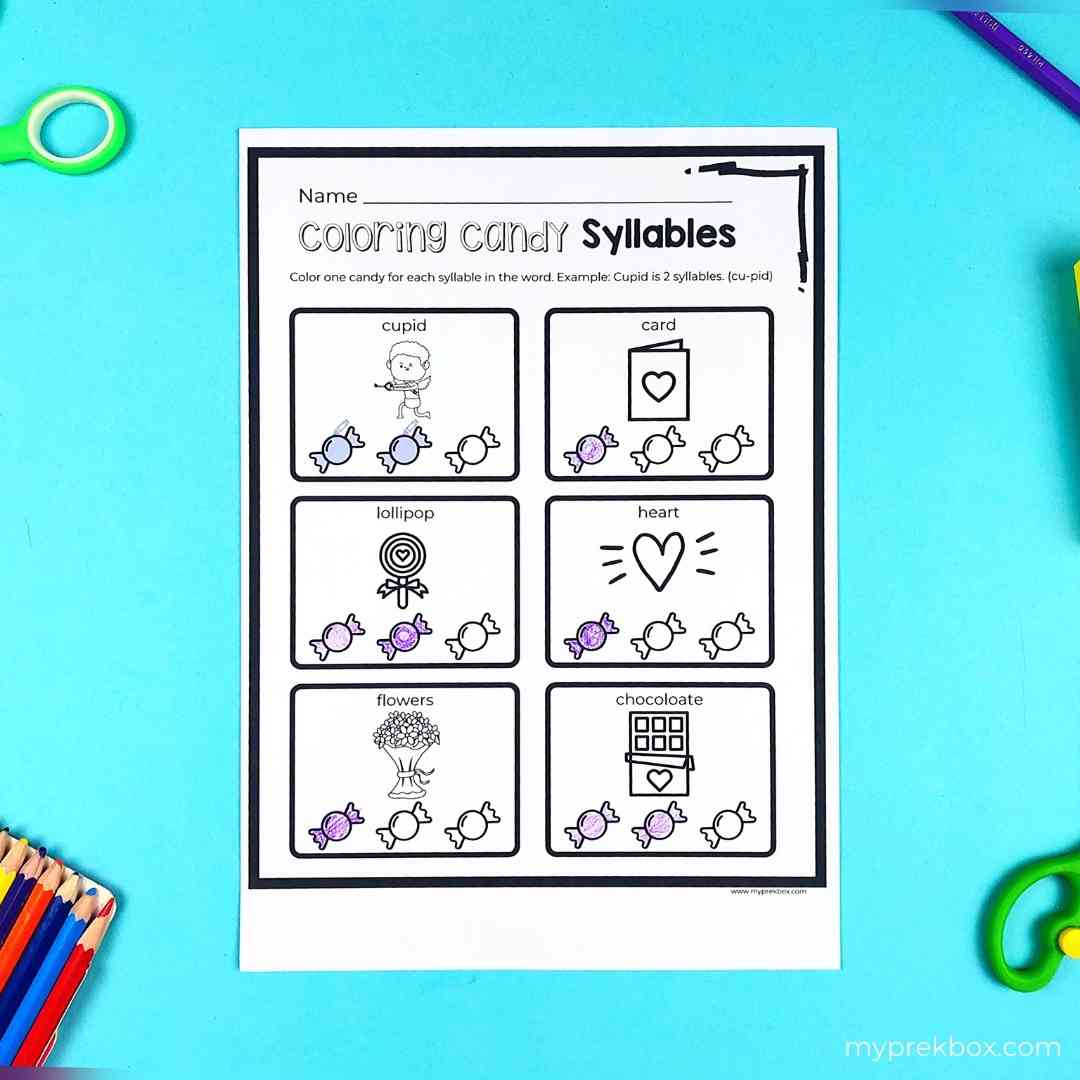 |
|
The Valentine Beginning Sounds is a nice activity to help kids develop alphabet knowledge and word awareness. They also learn to associate images with letters and initial sounds. The Coloring Candy Syllables worksheet will also help them practice segmenting simple words into syllables.
Both of these cute worksheets are from our Valentine Preschool Fun Pack, and you can get them for FREE!
|
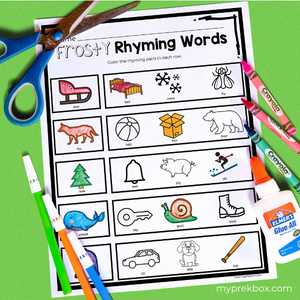 |
|
If your child needs practice with identifying rhyming words, you can use our Frosty Rhyming Words worksheet! Or our Below Zero Beginning Sounds worksheet if they are still working on their alphabet knowledge and word awareness.
These fun worksheets are from our Polar Preschool Fun Pack. Grab a copy now for FREE!
|
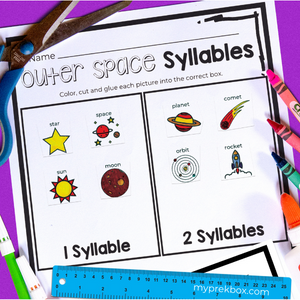 |
|
These space-themed worksheets will surely be a great help in practicing their phonological skills. For syllable awareness, we have the Outer Space Syllables worksheet. The Rhyming Rocket Ships will also help them in responding to words and develop phoneme awareness.
These fun worksheets are from our Space Preschool Fun Pack. Get a copy for your kids now - it's FREE!
|
My Pre-K Boxes
As we aim to help make preschool learning fun and engaging at home while at the same time targeting important Kindergarten skills (like phonological awareness), we integrate it the games and play-based activities to help develop phonological skills in My Pre-K Boxes too! Here are some of them:
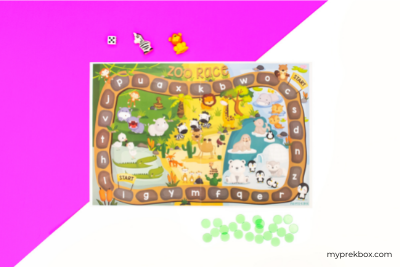 |
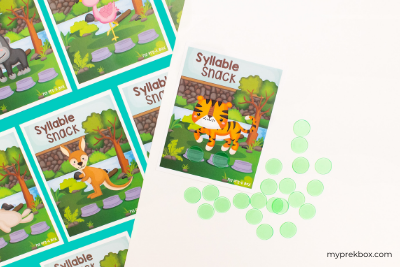 |
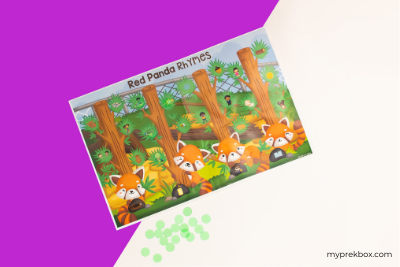 |
The Zoo Box contains exciting literacy activities to help your little one develop phonological awareness! See them enjoying the Zoo Race game, Syllable Snack, and Red Panda Rhymes as they practice counting syllables and identifying rhymes! Read more about The Zoo Box here.
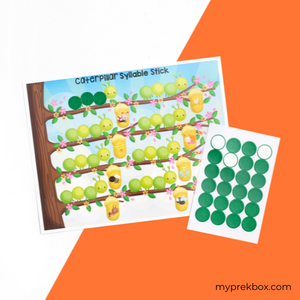 |
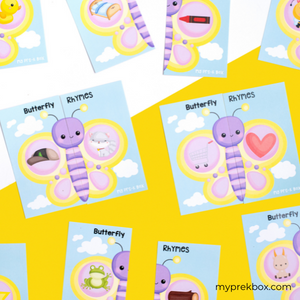 |
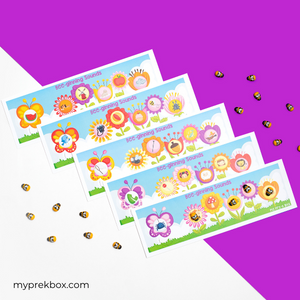 |
These very cute, bug-themed activities from The Bugs and Butterflies Box are not just lovable and fun - they also help preschoolers gain phonological skills through play-based activities! Help your kids learn to identify beginning sounds in the Bee-ginning Sounds Game, count syllables in the Catterpillar Syllable Stick, and recognize rhymes in the Butterfly Rhymes! Read more about The Bugs and Butterflies Box here.
Each box that kids receive every month has these kinds of activities to develop literacy as well as math, so they get to practice and play it regularly, making them Kindergarten-ready soon! If you want these activities without having to prepare them yourselves, just subscribe to My Pre-K Box and it will be delivered straight to your door.

Visual learner? Here's an infographic to sum it up.
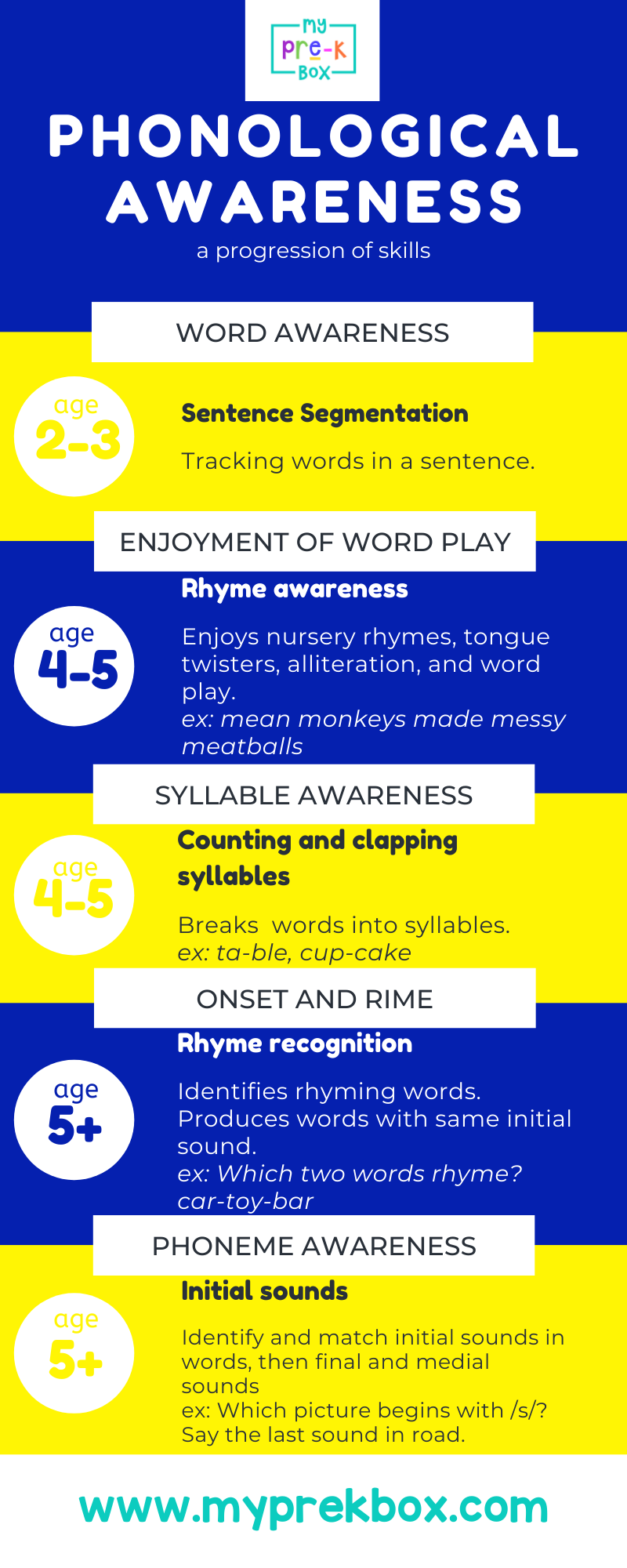
Need help developing preschool activities to do at home to learn these skills? We got you! Choose a plan that suits you and you'll be ready for play to learn preschool activities teaching phonemic awareness skills and more! It is our goal to make your life easy, with no prep Pre-K home curriculum to get your child ready for an amazing kindergarten year!
Let's Connect!
Want more activities and crafts to help your preschooler develop Kindergarten skills? Then, be sure to LIKE and FOLLOW us on Facebook and Instagram for more of these, plus more details on My Pre-K Box subscription boxes!
Haven't tried My Pre-K Box yet?
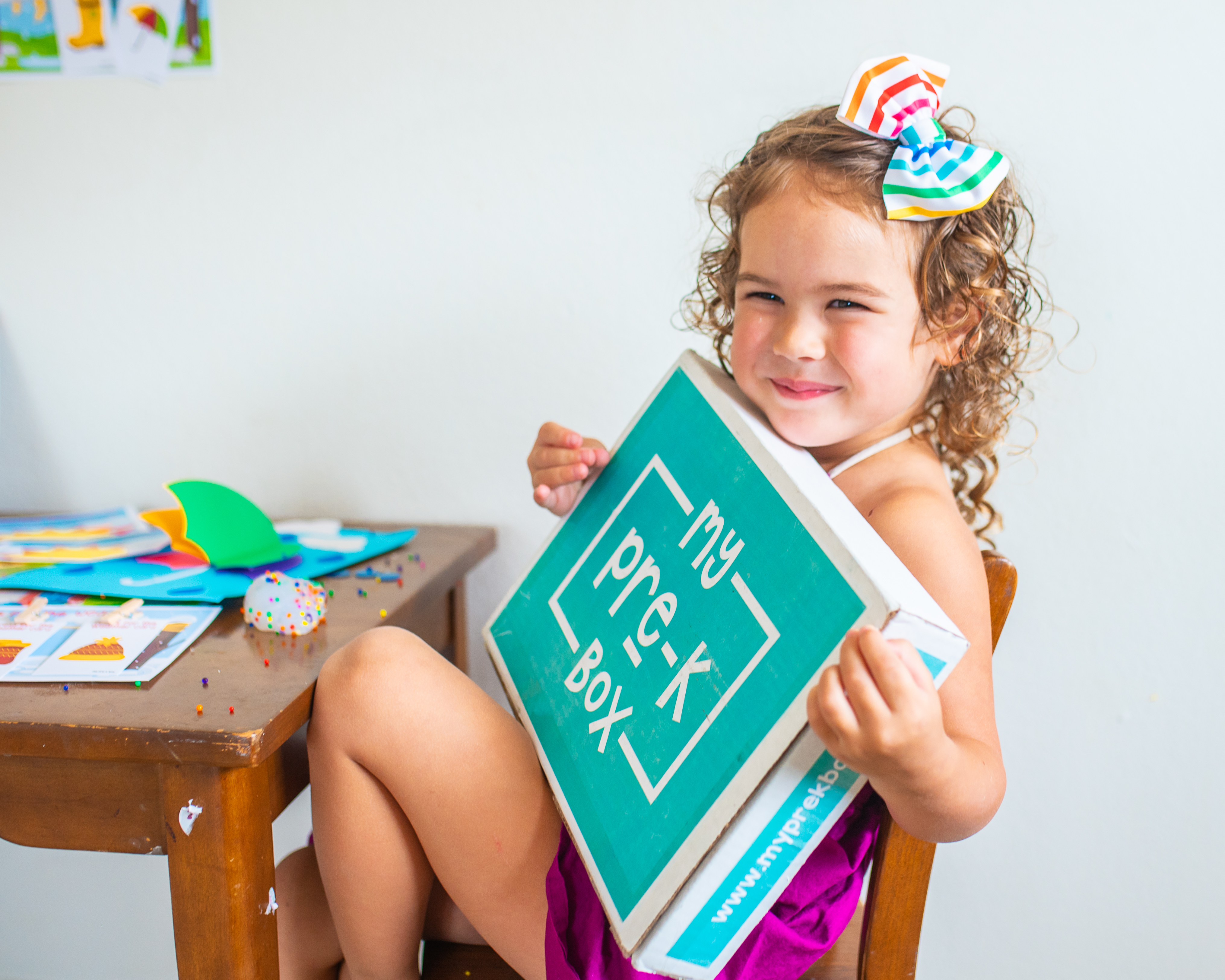 |
My Pre-K Box is the best monthly subscription box for kids ages 3-5!
Everything you need to play, create, explore, learn, laugh, and enjoy!
|
